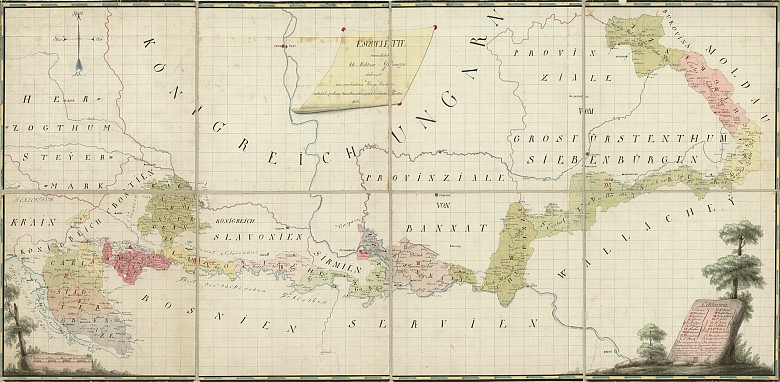Croatian colonists for a devastated (Burgen)land
Croatian peasants were resettled in areas of present-day Burgenland and Lower Austria as a bulwark against the Ottomans, re-cultivating these tracts of depopulated and devastated land.
Many eastern parts of the monarchy had been laid waste in the course of the Turkish Wars, and agrarian crises and falling grain prices put extra pressure on feudal lords and peasants alike as the latter were no longer able to pay their dues. This applied in particular to the area of present-day Burgenland.
Not until the market for agricultural produce improved during the 1520s and 1530s did the feudal overlords show any interest in re-settling their devastated villages. A number of magnate families undertook systematic re-settlement, for example Franz Batthyány, who between 1530 and 1550 relocated his subjects in Croatia and Slavonia to Rechnitz-Schlaining and Güssing in today’s Burgenland. Exposed to Ottoman attacks for more than 130 years (1463-1593), the Croatian inhabitants had fled the war zones and emigrated in droves to the north, to the heart of the monarchy.
The feudal overlords responsible for re-settling the Croatian colonists obtained a number of exemptions from tolls and duties for them so that they could transport their belongings duty-free. Additionally, the new settlers were also freed from state taxes and obligatory service to their feudal overlords for a certain period of time, giving them time to set themselves up economically. The feudal overlords also provided timber for the construction of houses as well as seed for crops. In the newly settled villages the Croatians outnumbered the original inhabitants.
In Lower Austria the Estates warned against this 'overpopulation’. Emperor Maximilian II initially rejected this view, which he considered ill-advised, as he was wary of fomenting the distrust of the already established Croatian population. He emphasized the Croatians’ loyalty to the Monarchy as they would rather leave their home country and all they owned than surrender themselves up as tributaries to the arch-enemy, i.e. the Ottomans (‘ehe sy sich … dem erbfeindt zu Contributari ergeben, eher ir vatterlandt und vermugen verlassen...’). However, he was also loath to incur the displeasure of the Estates, and therefore dispatched secret decrees to the feudal overlords, ordering them to install an ethnic German whenever a property formerly occupied by Croats fell vacant. Eventually a general mandate was issued in 1573 prohibiting any further Croatian settlement in Lower Austria.















